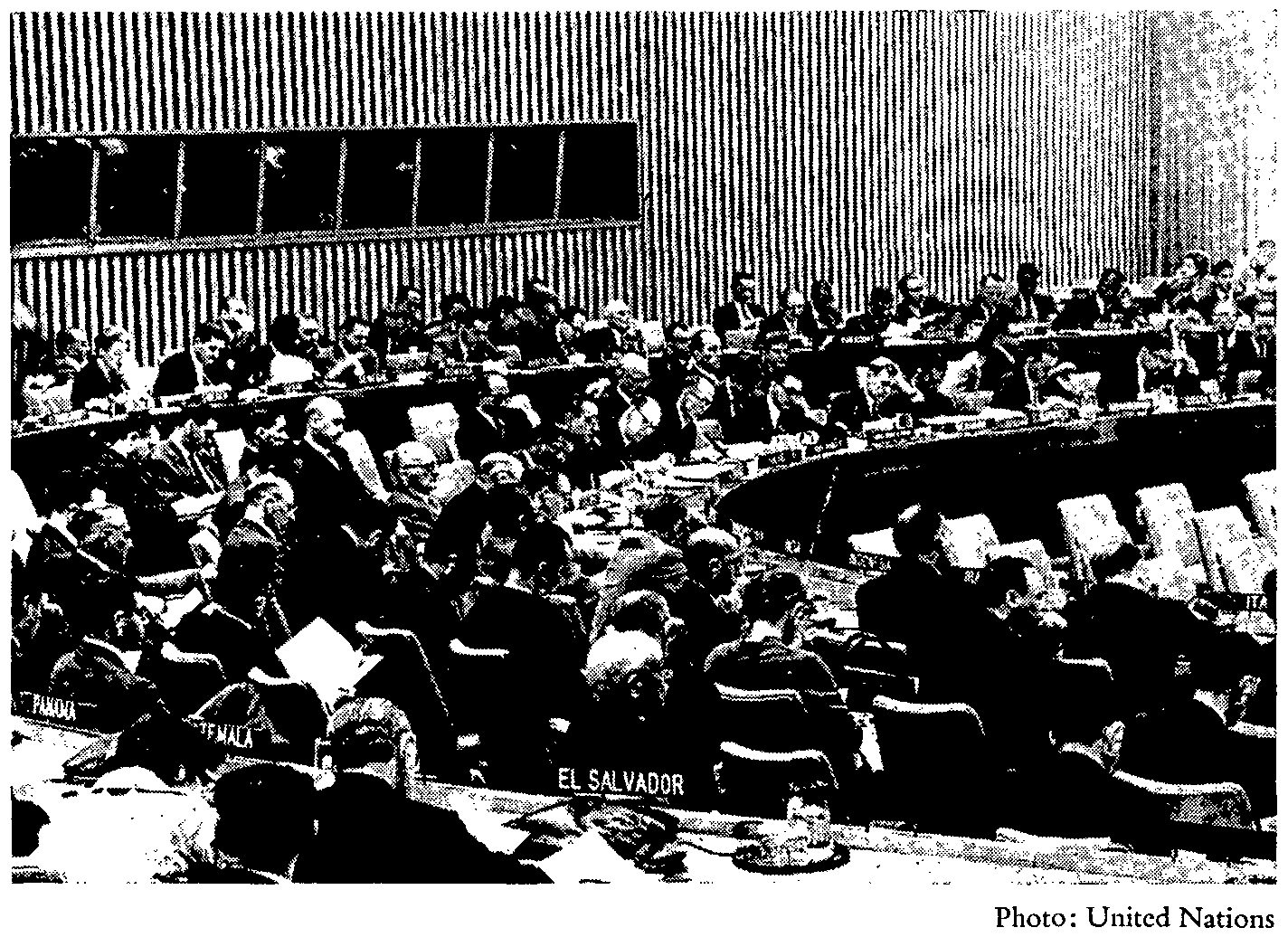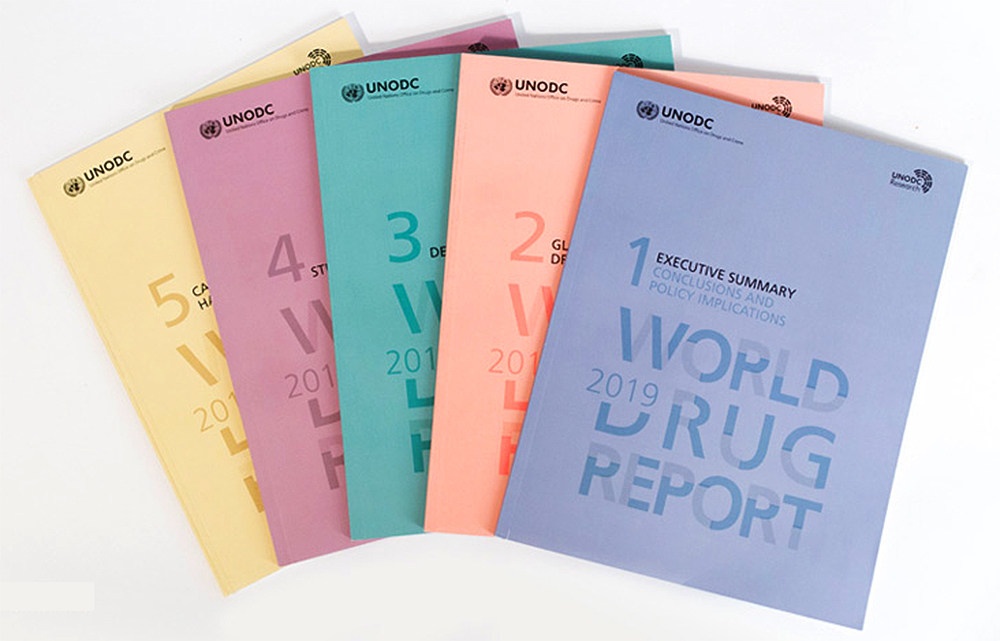 On the occasion of the International Day Against Drug Abuse and Illicit Trafficking, the United Nations Office on Drugs and Crime (UNODC) presented the 2019 World Drug Report.
On the occasion of the International Day Against Drug Abuse and Illicit Trafficking, the United Nations Office on Drugs and Crime (UNODC) presented the 2019 World Drug Report.
The World Drug Report 2019 is again presented in five separate parts that divide the wealth of information and analysis contained in the report into individual reader-friendly booklets in which drugs are grouped by their psychopharmacological effect for the first time in the report’s history.
Booklet 1 provides a summary of the four subsequent booklets by reviewing their key findings and highlighting policy implications based on their conclusions. Booklet 2 contains a global overview of the latest estimates of and trends in the supply, use and health consequences of drugs. Booklet 3 looks at recent trends in the market for depressants (including opioids, sedatives, tranquillizers and hypnotics), while Booklet 4 deals with recent trends in the market for stimulants (including cocaine, amphetamine-type stimulants and new psychoactive substances). Booklet 5 contains a review of recent trends in the market for cannabis and for hallucinogens. The section on cannabis also includes a review of the latest developments in the jurisdictions that have adopted measures allowing the non-medical use of cannabis.
As in previous years, the World Drug Report 2019 is aimed at improving the understanding of the world drug problem and contributing towards fostering greater international cooperation for countering its impact on health, governance and security.
In 2017, an estimated 271 million people, or 5,5 per cent of the global population aged 15-64, had used drugs in the previous year. Globally, some 35 million people are estimated to suffer from drug use disorders and who require treatment services (only one in 7 people who need support gets it). The Report also estimates the number of opioid users at 53 million, up 56 per cent from previous estimates, and that opioids are responsible for two thirds of the 585,000 people who died as a result of drug use in 2017. 11 million people injected drugs in 2017, of whom 1.4 million live with HIV and 5.6 million with hepatitis C.

“The findings of this year’s World Drug Report fill in and further complicate the global picture of drug challenges, underscoring the need for broader international cooperation to advance balanced and integrated health and criminal justice responses to supply and demand,” said Yury Fedotov, UNODC Executive Director.
Commenting the Report, Science for Democracy’s Coordinator Marco Perduca emphasized that “The theme of this year’s international day was “health for justice and justice for health”, though the disastrous impacts on the health of who is prosecuted, if not persecuted, for drug-related crimes is not acknowledged in the report. Much more is still invested in the securitarian and penitentiary aspect rather than the socio-sanitary one. All of this despite the increase in consumption and in particular problematic consumption. And yet, the Report ends with a recommendation about the necessity of providing help to those in need (only one in 7 people who need support gets it).”
New York based organisation Filter notes in their article that “the report failed to significantly evaluate widespread drug-associated human rights abuses—inherent to prohibition and accelerated by the ascendancy of far-right leaders“. There, Heather Haase, chair of the New York NGO Committee on Drugs, commented that “One thing that stood out in the report was, there was no section on human rights. That’s a huge issue in drug policy.”
 To read The World Drug Report 2019 follow this link>>>
To read The World Drug Report 2019 follow this link>>>
 In 1961, the Member States of the United Nations set themselves a goal to eliminate illegal opium production by 1979 and that of cannabis and coca by 1989. In 1998, they proclaimed to be ready to achieve a world without drugs within 10 years.
In 1961, the Member States of the United Nations set themselves a goal to eliminate illegal opium production by 1979 and that of cannabis and coca by 1989. In 1998, they proclaimed to be ready to achieve a world without drugs within 10 years.


 On the occasion of the International Day Against Drug Abuse and Illicit Trafficking, the United Nations Office on Drugs and Crime (
On the occasion of the International Day Against Drug Abuse and Illicit Trafficking, the United Nations Office on Drugs and Crime (
 To read The World Drug Report 2019
To read The World Drug Report 2019